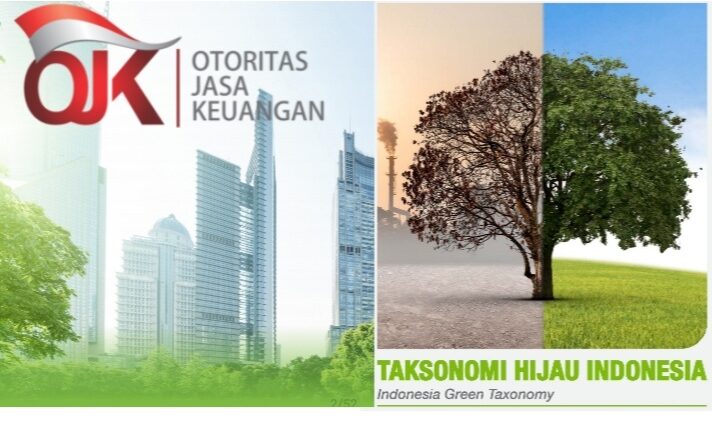Green Taxonomy Scheme Supports Indonesia’s Sustainable Economy
By: Kevin Sirait )*
The government continues to develop a sustainable Indonesian economy. One of these efforts is to initiate a green taxonomy program.
The Financial Services Authority (OJK) has developed a sustainable financing scheme for the financial services industry to support the development of a new economy, with a green economy development priority, known as the Green Taxonomy.
Wimboh Santoso as Chairman of the OJK Board of Commissioners said that the Green Taxonomy will be a guide for policy making in providing incentives and disincentives from various ministries and institutions, including OJK in the future.
The Green Taxonomy Scheme is also one of OJK’s five priority policies in the financial services sector in 2022. This was stated by Wimboh in front of President Joko Widodo and the audience at the 2022 Financial Services Industry annual meeting.
This includes the establishment of a carbon exchange and the issuance of a Green Taxonomy 1.0 (One point O). OJK together with a number of self-regulatory organizations (SROs) in the country, namely the Indonesia Stock Exchange, the Indonesian Central Securities Depository, the Indonesian Central Securities Depository and the Indonesian Clearing and Guarantee Corporation, as well as the government are accelerating the framework for regulating the carbon market in Indonesia.
The Green Taxonomy was compiled by examining 2,733 economic sector and sub-sector classifications, of which 919 have been confirmed by the relevant ministries. This of course makes Indonesia one of the countries in the world that already has a national standard for the green economy sector, in addition to the European Union and Asia.
The Indonesian Green Taxonomy Program was also launched by President Joko Widodo on the same occasion. At the annual celebration of the stakeholders in the financial services industry, the Head of State expressed his appreciation for the policy directions that have been made by the OJK for the financial industry this year.
The President also gave directions to the OJK to continue to monitor and make policies that can harmonize the financial services sector and the real sector. President Jokowi said that the financial services sector and the real sector must support and strengthen each other in difficult times like today. Without a good financial services sector, the national economy will not run well and sustainably.
Increasing awareness of the climate crisis. This trend makes the world compete to make the world a better place so that it can be passed on to future generations.
One of the issues of concern is carbon dioxide emissions. The target to be achieved is to reduce carbon emissions by 41% by 2030 compared to 2010 levels. The next target is to achieve carbon neutrality by 2060.
DBS Bank Chief Sustainability Officer Mikkel Larsen said, the implementation of a green taxonomy in the banking industry requires a framework that requires a framework from each bank.
He explained that every bank must have a system that supports green development so that it can be implemented in the long term. Not only banking, companies operating in other sectors must also transition to be able to grow sustainably. He also assessed the need to increase the awareness of business actors in order to change the way of doing business to be more advanced and follow the trend of the green economy. Economic sustainability and environmental sustainability are important for the whole world.
Nationally, the Green Taxonomy is the basis for sustainable business and investment. The taxonomy will also make it easier for business actors to improve the quality of risk management. The preparation of the green taxonomy is carried out through the establishment of a national sustainable finance task force involving relevant ministries/agencies and stakeholders. The developed taxonomy will accommodate all current guidelines regarding the green sector.
The sustainable finance initiative developed will integrate seven components into a single ecosystem. The seven components of sustainable finance consist of policies, products, market infrastructure and coordination of related ministries/agencies. Then, non-government support, human resources and awareness.
A sustainable economy is what is needed especially when Indonesia has not been separated from the pandemic status. Of course, the green taxonomy scheme deserves support, especially since it is the foundation for sustainable business and investment. So that this scheme is expected to be an effort to accelerate national economic development which is currently really needed for Indonesia’s economic recovery.
)* The author is a contributor to the Press Circle and Cikini Students
